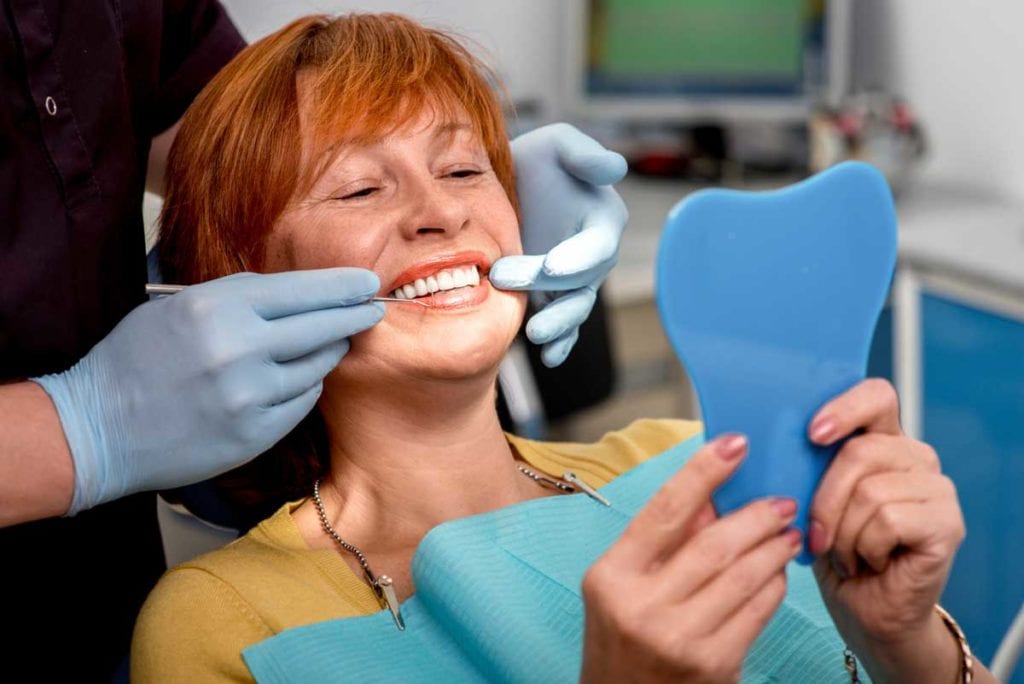
Missing teeth make everyday living, such as eating, speaking, or even smiling, more difficult. Aside from physical discomfort, emotional distress due to tooth loss should ideally impact quality of life and self-esteem. Trauma, disease, or age aside, restoration of lost teeth is essential in obtaining comfort and function.
If considering dental dentures, it is best to be informed about your options. Your specialist dentist in Coquitlam can check your mouth condition and recommend to you the most suitable denture for your specific situation and way of life. The following article informs you about what to look for before you get dentures from your specialist dentist, how dentures work, and how to pick the most suitable ones for you.
What are Dentures?
Dentures are removable dental appliances that replace missing teeth and the tissues that support them. Dentures are specifically made to fit the shape of your mouth and will feel, look, and even work naturally. Depending on the condition of your mouth, dentures can be temporary or permanent.
What to Know Before Getting Dentures
Before moving forward with treatment, here are essential considerations:
- Initial Assessment: Your oral health must be evaluated for bone strength, gum condition, and any remaining teeth.
- Adjustment Period: It takes time to adapt to speaking and chewing with new dentures.
- Maintenance Matters: Dentures should be kept clean and well-maintained so that they stay in good condition.
- Longevity: Most dentures last 5–10 years, although at intervals, they will need to be adjusted due to normal changes in your jaw.
- Support Options: Some patients need pre-treatment treatments, such as extractions or gum reshaping, before dentures can be placed.
How Dentures Work
Dentures are designed to sit comfortably on your gums and are held in place either by suction, adhesive, or dental implants, depending on the type. After impressions are taken, your custom dentures are crafted to mimic the shape, size, and colour of natural teeth.
Primary functional advantages are:
- Restoring normal chewing and biting ability
- Facial support by the muscles and avoiding a sunken face
- Allowing improved speech
- Offering a more normal smile
Types of Dentures Available
There are different dentures made available depending on how many teeth are missing, the health of the jaws, and the dental needs overall. The following are the primary options:
Complete Dentures
Alternatives where both upper and lower front teeth are lost. These sit on the gums only and can be held in place using an adhesive for extra support.
Partial Dentures
Ideal for people who cannot afford several implants but do require a permanent solution. They are held in place by your teeth by metal clasps or precision attachments.
Implant-Supported Dentures
Dental implants placed in the jaw through a surgical procedure hold them in place. These offer maximum stability and natural function, particularly for the lower jaw.
Immediate Dentures
Placed directly after tooth extraction. They are temporary, awaiting the healing and adaptation of your mouth.
Dentures for Missing Teeth: Are They For You?
Dentures serve well in cases of:
- Patients with extensive tooth loss from decay or trauma
- Patients with compromised jawbones who are not ideal implant candidates
- People looking for a cost-effective, non-surgical tooth replacement
- People who require temporary tooth replacement as they await other dental procedures
A dentist near you can discuss your medical history, current dental status, and expectations with you to determine if dentures are the best fit for your smile.
Choosing the Right Dentures in Coquitlam
All dentures are not alike. The right one will depend on several reasons:
- Comfort and Fit: Uncomfortable or speech-restricting, ill-fitting dentures.
- Aesthetics: Well-made dentures are meant to make your face more attractive and harmonious with your teeth.
- Functionality: Some dentures are better fitting and stronger at biting than others.
- Lifestyle: People who lead active lives may want implant-supported ones for more strength.
- Budget: Cost depends on material, type, and need for pre-treatment.
Make sure to inquire about these matters at your initial consultation to receive dentures best suited to your requirements.
Getting Used to Your New Dentures
It is not easy at first to get used to dentures. For a while, you might feel:
- A little soreness or pressure
- More saliva
- Trouble with some foods or speaking clearly
These effects typically pass soon. Follow-up appointments enable your dental care provider to make adjustments and establish a comfortable, secure fit.
Adjustment tips:
- Begin with soft foods and cut food into tiny pieces
- Practice reading aloud in an attempt to restore clear speech
- Rinse your mouth after eating and brush your dentures daily
- Soak them at night to maintain their shape
Long-Term Care and Maintenance
To keep your dentures to keep them functional and clean:
- Clean with a soft toothbrush and non-abrasive liquid
- Treat them gently so as not to break them
- Avoid using hot water to prevent warping the material
- Get your dental professional to check them regularly for fit and oral health examination
Good cared for dentures can increase your quality of life in the coming years.
Let Experience Guide Your Tooth Replacement Journey!
If you’re considering the replacement of teeth, dentures are the best solution in the long term. Whether full or partial tooth loss is your issue, specialized care and professional advice can make all the difference. Book an appointment now at Lafarge Dental to talk through your options and take the first step to a healthier, more confident smile.
